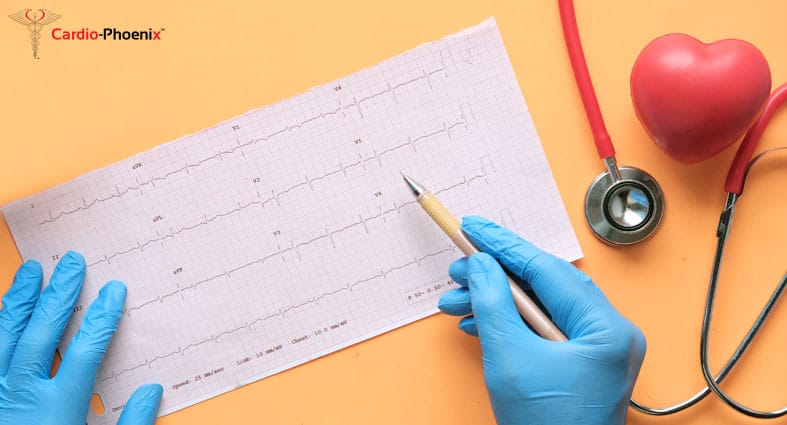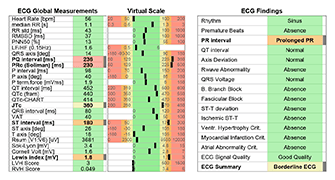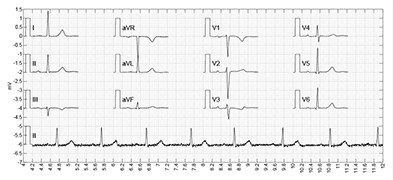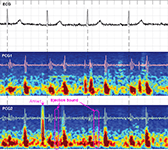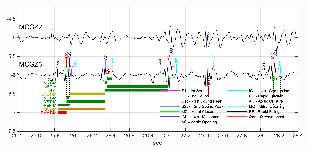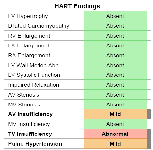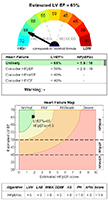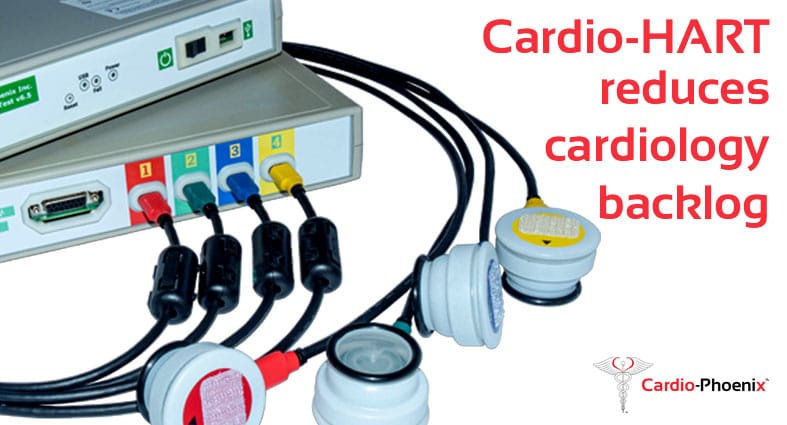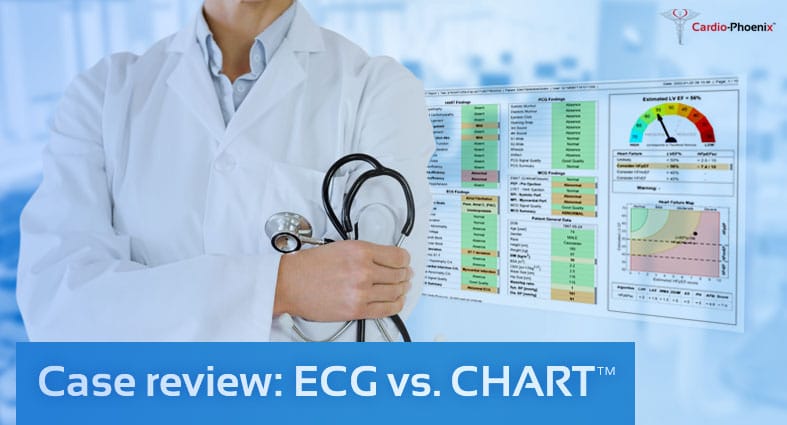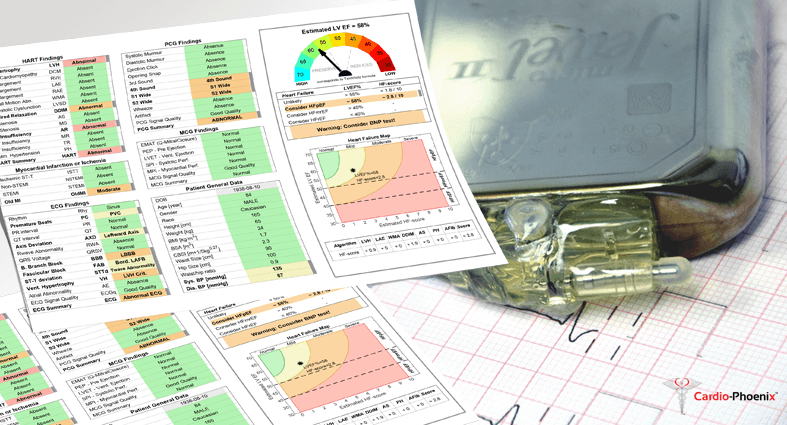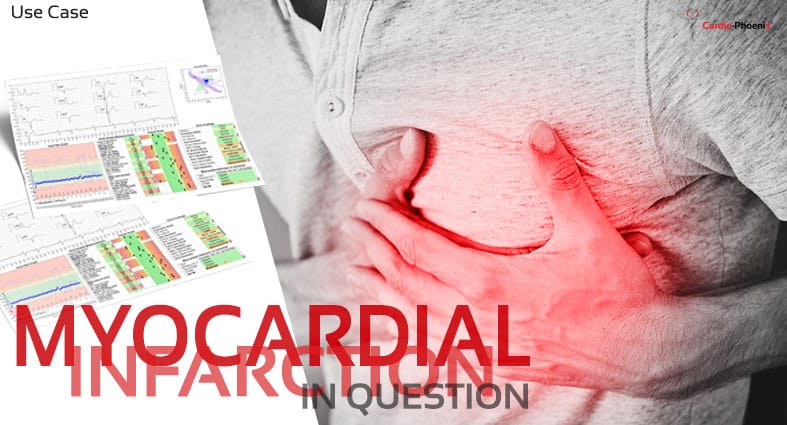Situation
83-year-old female patient with a stressful life, glucose=8.00mmol/L, symptomatic (fatigue, sleep problems), and got CHART test in primary care.
CHART report interpretation
Risk Assessment
The systolic blood pressure is slightly elevated (140/80 mmHg). Family history of cardiovascular disease.
ECG
The ECG interpretation is borderline, with only first-degree AV-block by prolonged PR (PQ interval=236ms).
PCG
PCG shows some abnormalities, which are not necessarily pathological: pulmonic ejection sound and opening snap. Pulmonic ejection can be a sign of elevated pressure or stenosis in the pulmonic valve. However, the PCG signal has some unrecognized artifacts, which may disturb the automatic measurements.
MCG
The MCG-based systolic time intervals report prolonged electromechanical activation time (EMAT, measure the time between Qon and Mitral Closure), which could be a sign of dysfunction.
HART-findings and HF prediction
HART-findings shows mild aortic regurgitation, tricuspid regurgitation, and mild pulmonary hypertension, which put into context the ECG, PCG, and MCG abnormalities.
The estimated LVEF (65%) shows normal systolic function. The probability of HFpEF is unlikely, however, the HFpEF score (1.9) is borderline.
Echocardiography
CHART test was followed by ECHO examination, which confirms the preserved ejection fraction (LVEF=67%), mild pulmonary hypertension (RVSP=40mmHg), tricuspid regurgitation (TRpV=2.7m/s), and mild aortic regurgitation (grade I).
In addition, the ECHO revealed left atrial enlargement (LAVI=40mL/m2) and pseudonormal type diastolic dysfunction, which could not be detected by ECG or CHART bio-signals for this patient.
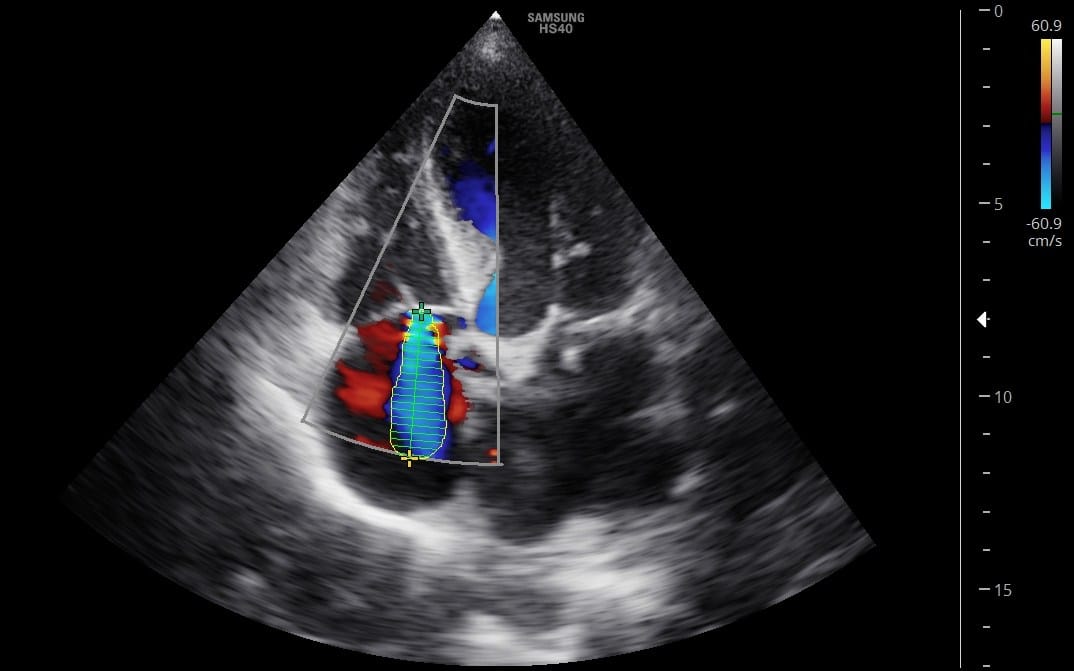
Conclusion
The ECG was inconclusive. ECG was not able to reveal the abnormalities detected later by the ECHO. However, CHART was able to indicate the heart problems, such as pulmonary hypertension as a potential heart failure risk.
What is CHART?
Cardio-HART or CHART is an AI cardiac diagnostic system for the non-invasive detection of early onset of 93% of all common heart diseases, including heart failure and heart valve disease. It is a direct replacement for ECG, augmenting it with Echo functionality, that is indicated for use in clinical care settings, including primary care.

